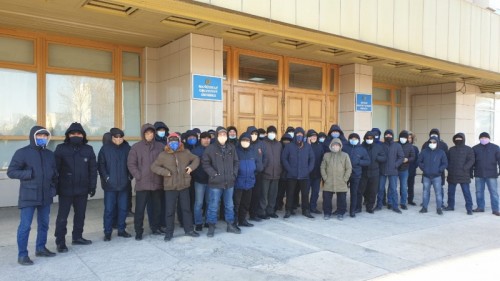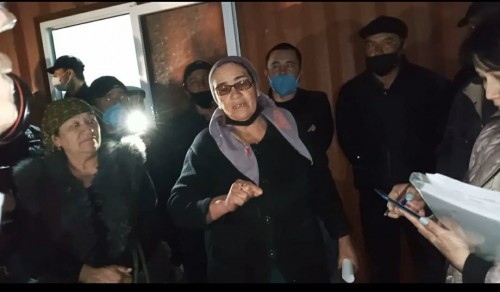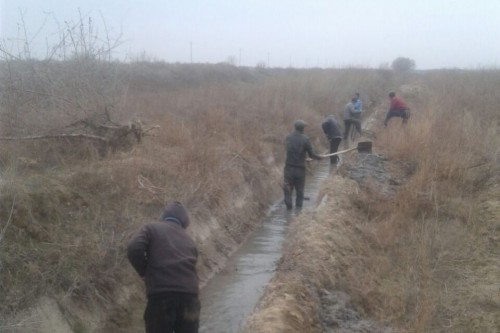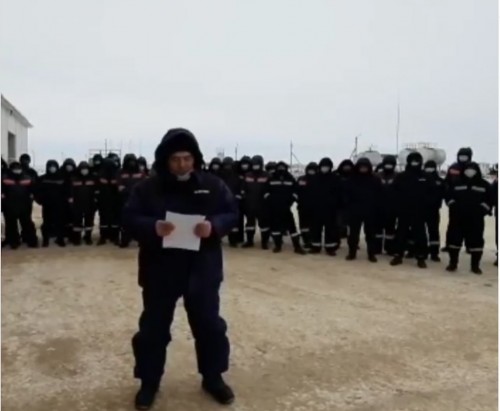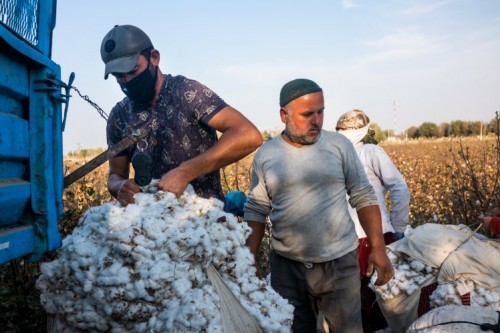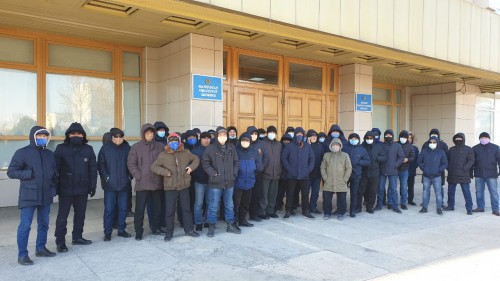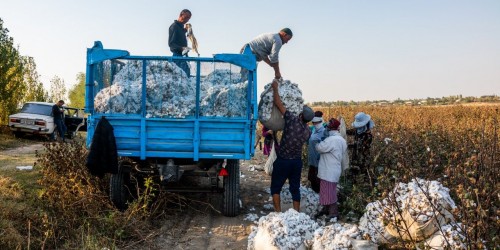Countries
Solidarity campaigns
13 August 2024
Georgia: Support striking workers at Evolution Gaming
5 June 2023
Georgia: Justice for Wolt couriers
10 May 2023
Belarus: Trade union activity is not extremism!
2 November 2019
Kazakhstan: Trade unionist Erlan Baltabay imprisoned - again!
19 November 2018
Kazakhstan: Stop repression and physical attacks on leaders of independent unions; hands off Larisa Kharkova, Erlan Baltabai and Dmitriy Senyavskiy
18 April 2018
MALOKHAT STILL NEEDS YOUR HELP
News
23 March, 2021 / kazakhstan
The Kazakh Authorities Continue Their Crack-Down on Independent Unions
The persecution of independent trade unions continues in the Republic of Kazakhstan. On February 5, 2021, by decision of Judge Kasharbekova A.U. of the Specialised Inter-District Economic Court of the City of Shymkent, the activities of the Sectoral Union of Fuel and Energy Workers were suspended for a period of six months. The Court decision has been appealed, yet high-ranking State officials speak of its coming into force even before the appeal was examined. This is the position explicitly expressed in a letter to the workers of Oil Construction Company, Ltd. dated February 10, 2021, signed by Akmadi Sorbasov, First Deputy Minister for Labour and Social Protection of the Population of the Republic of Kazakhstan.
23 March, 2021 / uzbekistan
Employees of Indorama Agro LLC established an independent union - March 19, 2021
On March 19, 2021, over 200 employees of Indorama Agro LLC gathered in Sardoba in Syrdarya region to hold a founding meeting to establish an independent trade union. The employees were forced to hold the meeting outside as they were refused entry to a previously agreed conference room 20 minutes prior to the start of the meeting because of “urgent” repairs. It was agreed that employees could use another room, but the electricity was then unexpectedly cut off for reasons unknown.
17 March, 2021 / uzbekistan
WILL INDORAMA AGRO STAND IN THE WAY OF UZBEKISTAN’S FIRST INDEPENDENT TRADE UNION?
Indorama issues its agricultural workers, who work all year round, with “civil legal agreements”, as opposed to employment contracts. They are thus considered seasonal and not permanent workers which means that they have no entitlement to social protections such as sick pay, social benefits or holiday pay.
05 March, 2021 / kyrgyzstan
PUBLIC CALL FROM BIR BUINO KYRGYZSTAN TO MARIPOV U.A., PRIME-MINISTER OF THE KR
We have carefully reviewed the 100-day Plan of the Government of the Kyrgyz Republic. We welcome the new steps to improve social and economic situation of the country. We hope that you will take into consideration the recommendations that concern vulnerable groups of citizens who have been waiting for years, since the revolutions, decision-making process one the part of new authorities, with equal participation of activists from the communities to the national levels. We kindly request you to focus attention on labor inequality and importance of partnership of government and business with independent trade unions to protect the rights of workers, living in the Kyrgyz Republic and abroad. It is important to urgently abolish the list of prohibited professions for women.
26 February, 2021 / kazakhstan
Kazakhstan: New large oil field discovered in Caspian region
Meridian Petroleum president Baltabek Kuandykov described the discovery of the field as “a truly historic event for our country.” Mangystau governor Serikbai Trumov said the field would “give a powerful impetus to the social and economic development of the region and create new jobs.”
24 February, 2021 / kazakhstan
Kazakhstan: Workers increasingly resorting to strikes, and succeeding
Dialogue is preferred to confrontation, although salary imbalances are still strong. The year has started uncomfortably for Kazakhstan’s mining and oil companies as workers become more vocal in their demands for higher salaries.
20 February, 2021 / uzbekistan
Land-grabs – the new red flag for Uzbek cotton sector
Apparel brands are said to be eyeing Uzbekistan as a potential source of cotton, particularly with Xinjiang cotton now the subject of US sanctions. A process of reform has made significant progress on forced labour issues in Uzbekistan, but now another issue has arisen: land-grabs. In this special piece for Apparel Insider, Lynn Schweisfurth, a consultant for Uzbek Forum for Human Rights, suggests the privatisation Uzbekistan’s cotton sector is seeing huge tracts of land being transferred to private operators for cotton cultivation, with farmers coerced into “voluntarily” giving up their land leases, with devastating effects on rural livelihoods.
03 February, 2021 / kazakhstan
Kazakhstan: Threat against fuel and energy workers union
Kazakh authorities continue to put pressure on independent trade unions. Below you can find a letter send by ITUC and IndustriAll global to the President of Republic of Kazakhstan Mr Tokayev and invitation to support Labourstart campaign.
29 January, 2021 / kazakhstan
Unprecedented crackdown on human rights organisations in Kazakhstan
Between 15 and 25 January 2021, the Kazakh tax authorities ordered a three month suspension on the operation and activities of three human rights organisations: Kazakhstan International Bureau for Human Rights and the Rule of Law, The International Legal Initiative Foundation and the public association Echo. The tax authorities also imposed fines on the three aforementioned organisations as well as another human rights organisation, Erkindik Kanaty, for alleged violations in reporting of foreign funds.
28 January, 2021 / uzbekistan

